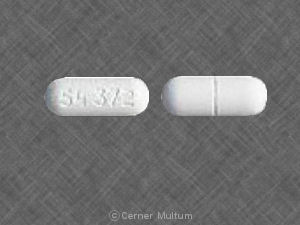What is the most important information I should know about calcium gluconate?
Follow all directions on your medicine label and package. Tell each of your healthcare providers about all your medical conditions, allergies, and all medicines you use.
What is calcium gluconate?
Calcium is a mineral that is found naturally in foods. Calcium is necessary for many normal functions of the body, especially bone formation and maintenance.
Calcium gluconate is used to prevent or to treat calcium deficiencies.
Calcium gluconate may also be used for purposes not listed in this medication guide.
What should I discuss with my healthcare provider before taking calcium gluconate?
Ask a doctor or pharmacist if it is safe for you to take this medicine if you have ever had:
- kidney disease;
- kidney stones;
- cancer;
- a parathyroid gland disorder; or
- high levels of calcium in your blood.
Ask a doctor before using calcium gluconate if you are pregnant or breast-feeding. Your dose needs may be different during pregnancy or while you are nursing.
How should I take calcium gluconate?
Use exactly as directed on the label, or as prescribed by your doctor. Do not use in larger or smaller amounts or for longer than recommended.
Check the label of your calcium gluconate product to see if it should be taken with or without food.
Calcium gluconate may be only part of a complete program of treatment that also includes dietary changes. Learn about the foods that contain calcium.
Your calcium gluconate dose may need to be adjusted as you make changes to your diet. Follow your doctor's instructions very closely.
Store at room temperature away from moisture and heat. Do not freeze.
What happens if I miss a dose?
Take the missed dose as soon as you remember. Skip the missed dose if it is almost time for your next scheduled dose. Do not take extra medicine to make up the missed dose.
What happens if I overdose?
Seek emergency medical attention or call the Poison Help line at 1-800-222-1222.
What should I avoid while taking calcium gluconate?
Follow your healthcare provider's instructions about any restrictions on food, beverages, or activity.
What are the possible side effects of calcium gluconate?
Get emergency medical help if you have signs of an allergic reaction: hives; difficulty breathing; swelling of your face, lips, tongue, or throat.
Call your doctor at once if you have:
- little or no urinating;
- swelling, rapid weight gain; or
-
high levels of calcium in your blood --nausea, vomiting, constipation, increased thirst or urination, muscle weakness, bone pain, confusion, lack of energy, or feeling tired.
Common side effects may include:
- upset stomach, gas; or
- constipation.
This is not a complete list of side effects and others may occur. Call your doctor for medical advice about side effects. You may report side effects to FDA at 1-800-FDA-1088.
What other drugs will affect calcium gluconate?
Calcium can make it harder for your body to absorb certain medicines. If you take other medications, take them at least 2 hours before or 4 or 6 hours after you take calcium gluconate.
Other drugs may interact with calcium gluconate, including prescription and over-the-counter medicines, vitamins, and herbal products. Tell your doctor about all your current medicines and any medicine you start or stop using.
Where can I get more information?
Your pharmacist can provide more information about calcium gluconate.
Remember, keep this and all other medicines out of the reach of children, never share your medicines with others, and use this medication only for the indication prescribed.
Every effort has been made to ensure that the information provided by Cerner Multum, Inc. ('Multum') is accurate, up-to-date, and complete, but no guarantee is made to that effect. Drug information contained herein may be time sensitive. Multum information has been compiled for use by healthcare practitioners and consumers in the United States and therefore Multum does not warrant that uses outside of the United States are appropriate, unless specifically indicated otherwise. Multum's drug information does not endorse drugs, diagnose patients or recommend therapy. Multum's drug information is an informational resource designed to assist licensed healthcare practitioners in caring for their patients and/or to serve consumers viewing this service as a supplement to, and not a substitute for, the expertise, skill, knowledge and judgment of healthcare practitioners. The absence of a warning for a given drug or drug combination in no way should be construed to indicate that the drug or drug combination is safe, effective or appropriate for any given patient. Multum does not assume any responsibility for any aspect of healthcare administered with the aid of information Multum provides. The information contained herein is not intended to cover all possible uses, directions, precautions, warnings, drug interactions, allergic reactions, or adverse effects. If you have questions about the drugs you are taking, check with your doctor, nurse or pharmacist.
Copyright 1996-2018 Cerner Multum, Inc. Version: 5.01. Revision date: 1/9/2018.
